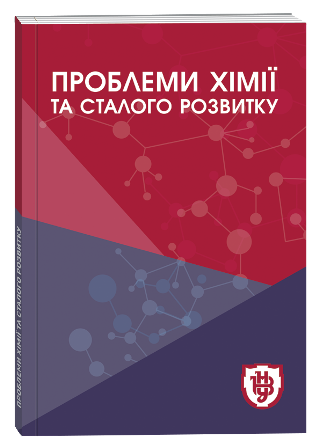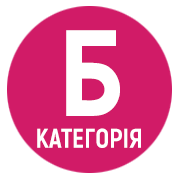POSSIBILITIES OF A PERSONALITY-ORIENTED APPROACH IN THE FORMATION OF COMMUNICATIVE COMPETENCE OF MEDICAL COLLEGE STUDENTS
DOI:
https://doi.org/10.32782/pcsd-2025-1-14Keywords:
person-centered approach, communication skills, communication competence, innovative methods, medical college, integration, professional competenceAbstract
Purpose of the work. Among the main goals of professional medical education, a significant role is given to the formation of communicative competence, which, in addition to the formation of basic skills, involves the mastery of competencies in recognizing the value and demonstrating respect for intersubject differentiation, tolerance and critical thinking. Of particular importance in this context is the personality-oriented methodological approach, which places the person himself, with his advantages and individual characteristics, at the center of educational activity. The purpose of the article is to analyze the potential of a personality-oriented approach to the formation of communicative competence of students of medical colleges. Methodology. The study belongs to the category of descriptive and includes case studies and analysis of secondary data. In the process of research, the structural-logical method, analysis and synthesis, comparison, deduction were used. Scientific novelty. The article considers the concept of the formation of interdisciplinary connections, which has the functionality of an integrated approach to the development of communicative skills. It is established that the studied process requires the formation of a stable ability of adequate mutual understanding in students, the desire to democratize relationships with participants in the professional communication process. It is emphasized that projects of a personalityoriented concept are important educational tools of the pedagogical strategy for the formation of life skills, including communication skills, cross-culturality and professional ethics. Conclusions. It is substantiated that the modern social space requires from physicians special attention to the concept of a culture of tolerance, the search for ways of its development. It is proven that the effective use of the potential of integrated classes and innovative digital tools within the framework of the strategy of personality-oriented learning contributes to the optimization of cognitive activity, the advancement of critical thinking and the sustainable development of an aesthetic worldview, which in synergy ensures the successful formation of communicative competence in the process of obtaining professional medical education in college.
References
Romijn B., Slot P., Leseman P. Increasing teachers’ intercultural competences in teacher preparation programs and through professional development: A review. Teaching and Teacher Education. 2021. № 98. https://doi.org/10.1016/j.tate.2020.103236.
Magee M., Kuijpers M., Runhaar P. How vocational education teachers and managers make sense of career guidance. British Journal of Guidance & Counselling. 2022. № 50(2). Рр. 273–289. DOI: https://doi.org/10.1080/03069885.2021.1948970
Скотна Н. В., Лялюк Г. М. Особистісно-орієнтований підхід до реалізації індивідуальної освітньої траєкторії здобувача вищої освіти. Педагогічна освіта: теорія і практика. 2020. № 28. С. 393–403.
Недельська С., Самохін І., Кряжев О., Бессікало Т., Кляцька Л. Особистісно-орієнтований підхід до навчання і виховання студентів медичного факультету. Соціально-етичні та деонтологічні проблеми сучасної медицини (немедичні проблеми в медицині) : зб. матеріалів V міжнар. наук.-практ. конференції, (28–29 лютого 2024 р). Запоріжжя : ЗДМФУ, 2024. С. 151–152.
Ramírez-Montoya M. S., Andrade-Vargas L., Rivera-Rogel D., Portuguez-Castro M. Trends for the Future of Education Programs for Professional Development. Sustainability. 2021. № 13(13). https://doi.org/10.3390/su13137244
Huang F., Cornell D. Teacher Support for Zero Tolerance Is Associated With Higher Suspension Rates and Lower Feelings of Safety. School Psychology Review. 2021. № 50(2). Рр. 388–405. DOI: https://doi.org/10.1080/2372966X.2020.1832865
Lysenko N., Shtefan L., Kholodniak O. Teaching tolerance at school: the experience of modern French education system. Journal of Liberty and International Affair. 2020. № 6 (1). Рр. 129–138. URL: https://www.ceeol.com/search/article-detail?id=853345
Szymkowiak A., Melović B., Dabić M., Jeganathan K., Kundi G. S. Information technology and Gen Z: The role of teachers, the internet, and technology in the education of young people. Technology in Society. 2021. № 65. https://doi.org/10.1016/j.techsoc.2021.101565
Hawkridge D. New information technology in education. Routledge, 2022. https://doi.org/10.4324/9781003312826
Burbules N. C., Fan G., Repp P. Five trends of education and technology in a sustainable future. Geography and sustainability. 2020. № 1(2). Р. 93–97. https://doi.org/10.1016/j.geosus.2020.05.001
Reis D. A., Fleury A. L., Carvalho M. M. Consolidating core entrepreneurial competences: toward a metacompetence framework. International Journal of Entrepreneurial Behavior & Research. 2021. № 27(1). https://doi.org/10.1108/IJEBR-02-2020-0079
Sinambela E. A., Mardikaningsih R., Arifin S., Ayu H. D. Development of Self Competence and Supervision to Achieve Professionalism. Journal of Islamic Economics Perspectives. 2020. № 1(2). https://doi.org/10.35719/jiep.v1i2.13
Hernandez-de-Menendez M., Morales-Menendez R., Escobar C. A. Competencies for Industry 4.0. Int J Interact Des Manuf. 2020. № 14. Р. 1511–1524. https://doi.org/10.1007/s12008-020-00716-2
Abdrakhman G., Issabekova G., Kudabayeva P. Multiculturalism As A Pedagogical Category Of Integrative-Modular Approach. Education Journal for Educators, Teachers and Trainers. 2022. № 13(1). С. 126–140. DOI: https://doi.org/10.47750/jett.2022.13.01.015
Gutu V., Boghian I. A Bidimensional Psycho-pedagogical Model for Tolerance Education. Romanian Journal for Multidimensional Education/Revista Romaneasca pentru Educatie Multidimensionala. 2019. № 11(4).
Sokol M., Galyna R., Khrystyna S., Hvozdyak O. Tolerance in the communicative culture of modern educational manager. Propósitos y representaciones. 2021. № 9(2). URL: https://dialnet.unirioja.es/servlet/articulo?codigo=8108857
Tangirov E. S. Mechanisms of educational study of students on the basis of modern pedagogical technologies. Spectrum Journal of Innovation, Reforms and Development. 2022. № 4. Рр. 247–250. URL: https://sjird.journalspark.org/index.php/sjird/article/view/108







